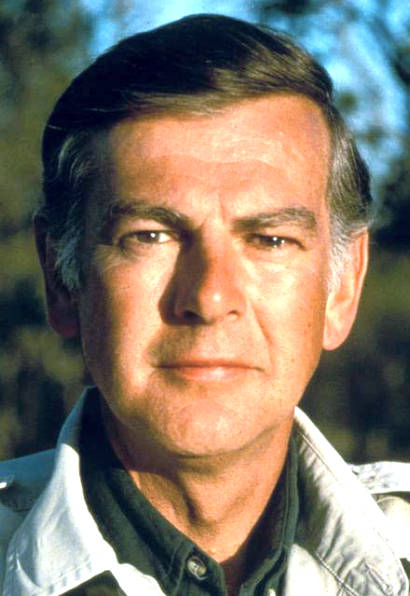On this date in 1943, paleoanthropologist Donald Carl Johanson was born in Chicago to Swedish immigrants. His father, a barber, died when he was 2 and his nonreligious mother, who came to the U.S. at age 16, worked as a cleaning lady to support them.
Johanson recalled some friends convincing him when he was about 12 to attend Sunday services at a Swedish Lutheran church. When he got home, his mother asked, in her heavily accented English, “Deed they ask you fer money?” When he said they did, she replied, “The first thing they’ll do is control you, then they will instill fear in you, and then they will take your money.” (FFRF convention speech, Oct. 24, 2014)
He earned a bachelor’s degree from the University of Illinois-Urbana in 1966 and his master’s degree (1970) and Ph.D. (1974) from the University of Chicago. The title of his Ph.D. dissertation was “An Odontological Study of the Chimpanzee with Some Implications for Hominoid Evolution.”
He started doing archaeological field work as an undergraduate. His first trip to Africa was in 1970, and he was working as an associate professor of anthropology at Case Western Reserve University in Cleveland in November 1974 when the discovery he is best known for was made. Working with Frenchmen Yves Coppens and Maurice Taieb at the Hadar paleontological site in northeastern Ethiopia, Johnson unearthed the fossil of a young adult hominid australopithecine that became known as “Lucy” (named after, over Johanson’s objection, the Beatles’ song “Lucy in the Sky With Diamonds,” which happened to be playing that evening at base camp).
Lucy, the first discovered member of Australopithecus afarensis, believed to be a distant ancestor of modern humans, was dated to 3.2 million years ago. Johanson later called her “the poster child for paleoanthropology and human origins.” The full excavation took three weeks and revealed 47 of Lucy’s 207 bones. The implications of the discovery were such that in 1979, Time magazine declared her a “front-page celebrity.” The bones are housed in a specially constructed safe in the paleoanthropology laboratories of the National Museum of Ethiopia in Addis Ababa.
In 1981, Johanson established the Institute of Human Origins in Berkeley, Calif., moving it to Arizona State University in Tempe in 1997. He served as its director until 2008 and as a professor in the university’s School of Human Evolution and Social Change. He continues to conduct lab research, write prolifically and lecture internationally as of this writing in 2020. His Lucy: The Beginnings of Humankind (with Maitland Edey) won a National Book Award in Science in 1982. More recently, with Kate Wong, he published Lucy’s Legacy: The Quest for Human Origins (2009).
His honors include the Academy of Humanism’s 1983 humanist laureate, the 1991 In Praise of Reason Award from the Committee for Skeptical Inquiry, FFRF’s 2014 Emperor Has No Clothes Award, numerous honorary degrees and membership since 2013 on the Advisory Council of the National Center for Science Education. He was elected in 2020 to the Board of Scientific Advisors of JASON, named for Jason, leader of the mythological Greek Argonauts. The board was established in 1960 to advise the U.S. government on matters of science and technology.
Johanson’s personal life, including any significant relationships, is not well-documented. In 1976 the Cleveland Plain Dealer noted that he drove a sports car and dated actress Morgan Fairchild: “The very appealing Johanson is one of the most handsome and brilliant bachelors in the country.”
His exceptionally informative speech to FFRF convention-goers in Los Angeles in 2014 to accept the Emperor Award can be read here. In it he said, “We know, every single one of us in this room, who the creator was — Mother Nature.”


